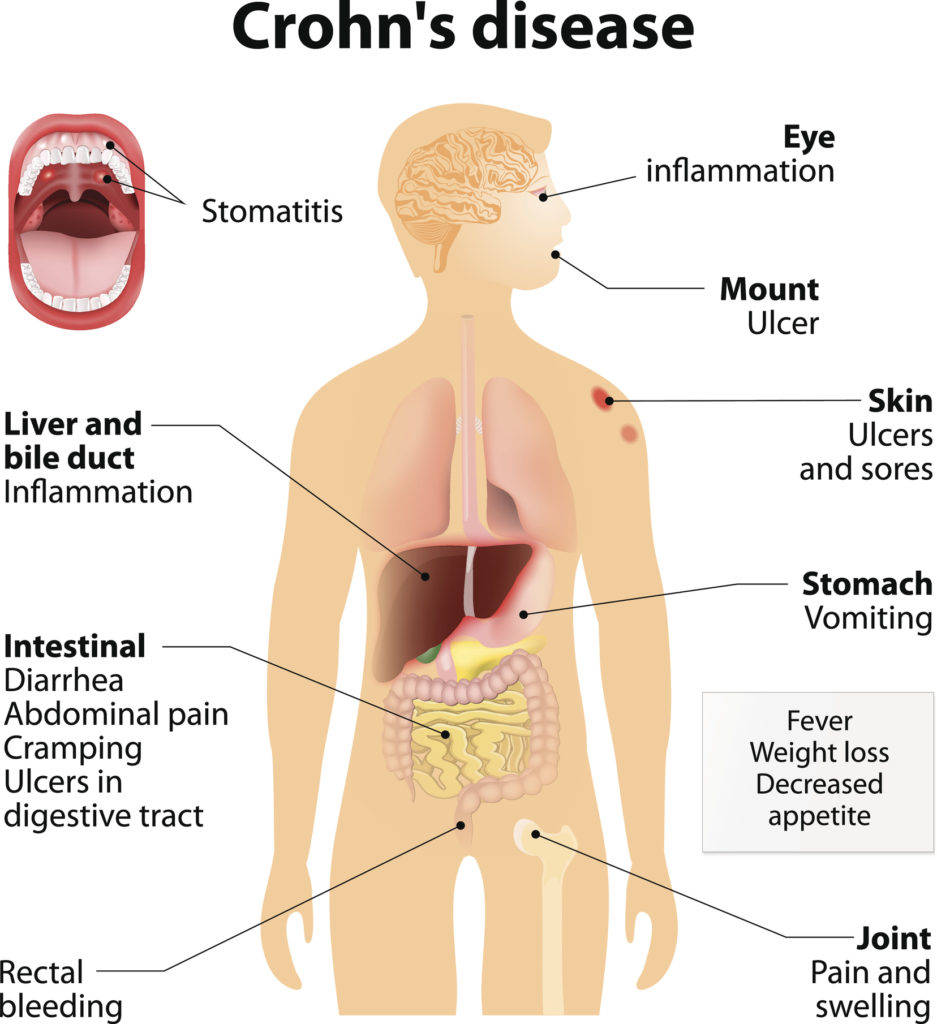
The BlackDoctor.org ‘My Story’ series features real stories of health triumphs written by and about our readers. Do you have a health and wellness testimony to share? Inspire millions and send your story at [email protected].
The summer before I entered high school I started experiencing symptoms such as abdominal pain, diarrhea, and severe weight loss. At a time that is supposed to be new and exciting as a teenager, I was experiencing new feelings of hurt, pain, and fear.
I was in fear because as my symptoms started to intensify and there was no getting around the fact that something was definitely wrong and getting worse progressively. I was desperately trying to hold on to being a normal teenager but I knew in the back of my mind that something was terribly wrong.
I knew that my pain was increasing and so severe that I needed something to help me get my life back. Little did I know that was never going to be the case again.
Life After Diagnosis
After a routine diagnostic group of tests I was diagnosed with a severe case of Crohn’s disease. I had no idea what to expect, but in hindsight there was absolutely nothing that the doctors could have told me to prepare me for the journey ahead. After diagnosis I tried my best to maintain a so-called normal life and cope with my new diagnosis.
I was immediately started on an extremely high dose of steroids and stayed on it for years. I started a chemotherapeutic agent and immunosuppressant. I became increasingly immunudeficient from all the medications I was on; I developed the shingles virus twice and I lost all of my hair. I stayed on these medicines for years in hopes that they would miraculously begin to start working and all my pain would disappear.
Each time I tried a different “promising” drug it was in hopes that my misery would subside. And after each drug failed me, my optimism began to fade. After exhausting all options, I had to have surgery.
I went into my first surgery with such high expectations; I was admitted to the hospital in hopes that this surgery would relieve me of my pain and all would be well. That was all but the case. After my first surgery all hell broke loose, I was the sickest I had ever been.
I began stints of constant hospital stays and procedures.
I began to suffer immensely with new symptoms.
I was constantly losing blood, was deathly tired and could barely get out the bed.
READ THIS: 5 Signs of Sudden Onset Crohn’s Disease
Shortly after that I had another surgery. I am not certain if I ever experienced a remission. Severe Crohn’s had become my norm. For over a decade, I adapted my life to live while being in excruciating pain some days and in pain most. I became oblivious to the fact my quality of life was gone.
My latest surgery I had a total proctocolectomy (removal of the colon and rectum) leaving me with a permanent ileostomy (opening in my belly).

Living My New Normal
I tried to hold on as long as I could to my colon. I was still striving to be “normal” by clinging to the very thing that was slowly killing me because of stigmas associated with having an ostomy. But there came a time that I had no choice. Having my colon removed was the best thing that has happened to me. There is absolutely no way I would want to go back other than to do it sooner.
My quality of life improved and thoughts that I had not felt in a long time, such as hope, resurfaced. I decided that I wanted to make a difference and improve the lives of others dealing with chronic illnesses. I am living my new normal. I am in love with my new body; my new body saved my life in more ways than one. I want others to not be afraid or ashamed of having an ostomy. I don’t want others to suffer because of the fear of being stigmatized of life saving procedures.
I aim to encourage young women and men through GutlessandGlamorous.Org. Gutless and Glamorous is dedicated to improving the lives of those living with chronic illness.
With a special interest in those living with or contemplating life-altering surgeries, my mission is to empower and uplift those living with chronic illness and to raise awareness and erase the stigmas and misconceptions of life-saving procedures.
A “colostomy” saved my life and I want to highlight that those living with one can be both #GutlessandGlamorous. It is my goal to help erase the stigma of life saving procedures. Anything that has the power to save a life can be nothing but beautiful.
Crohn’s Disease: Could You Have It and Not Know?

Have you ever felt that something was not quite right with your body, but everyone else said you’re fine or they try to tell you it’s not what you think it is? Well, that happened to Melodie Narain Blackwell, a wife, mother and former working professional.
Melodie suffers with Crohn’s, an Inflammatory Bowel Disease (IBD) and initially, before her official diagnosis, she felt pain in her joints. She was told it was rheumatoid arthritis, but she felt it was something more than that.
“I had debilitating arthritis they kept writing it off as gout. It got so bad that my joints were literally stuck, and I was crawling on the floor,” explains Melodie. “I began doing my own research because I realized something else was going on with me.”
Besides the arthritic joint pain, Melodie was losing her hair and had regular eye infections. Eventually, she began to bleed from her colon. She finally had an MRI and doctors could see something was going on with her immune system but weren’t sure exactly what.

After constantly being misdiagnosed, she became seriously ill and required surgery. After her second surgery, she finally received a correct diagnosis. She had an autoimmune disease (AD) called Crohn’s.
Nearly 24 million Americans suffer from autoimmune diseases. Crohn’s is one of the autoimmune diseases that affects more African Americans and especially African-American women. The average age for Crohn’s diagnosis is 15 to 35 years old.
Not knowing anything about autoimmune diseases, Melodie soon discovered having one is when your immune system mistakenly attacks healthy cells, tissue and organs. Autoimmune diseases can attack almost any part of your body and some may affect more than one part of the body. The cause of autoimmune diseases is not known and there are no cures, but some are treated with immunosuppressive medication and corticosteroids which helps to reduce the immune system’s hyperactivity.
Inflammatory Bowel Disease, which affects the lining of the intestine, is one of the more than 80 chronic illnesses that fall under autoimmune diseases. The two main forms of IBD are Crohn’s and ulcerative colitis.
Crohn’s Disease
This inflammatory bowel disease causes inflammation and ulcers in the gastrointestinal (GI) tract. It can cause bloody diarrhea, anemia, weight loss, abdominal pain and fatigue. Some people may live symptom-free while others, like Melodie, have severe chronic symptoms.
Melodie is such a fierce advocate for people with Crohn’s and IBD, especially people of color, that she created a nonprofit called Color of Crohn’s and Chronic Illinois (COCCI). She educates minority communities about this often-misdiagnosed illness, especially with women of color. She petitions to have African Americans included in large clinical trials for the disease because of low representation.

What started as a Facebook group of chronic illness sufferers grew to over 100 people. From that group she realized there is a lot of information that people don’t know. Her goal in creating the nonprofit is to make sure patients are informed. “One of the things that some members didn’t know was about the arthritis,” states Melodie.
Melodie has dealt with the effects of Crohn’s disease since 2014. Her illness is not in remission, but manageable and, because of the consequences of the disease, she cannot work outside of the home. She is very candid about her condition and the effects it has, like the drains she has in her rectum because of constant bleeding. Because of the bleeding, she must bathe regularly to prevent clouting, which keeps her homebound.
During this pandemic, Melodie is always home, except to go to her or her husband’s doctor’s appointment. She has no immune system and is pregnant with her second child that is due in the summer. Because of her disease, she will have a C-section so as not to traumatize the drains in her rectum or the fistulas in her colon.
Melodie understands how important being healthy is to her survival. Having as strong an immune system as possible, getting her rest, exercise and her relationship with God are the keys to her successful existence with an autoimmune disease.
For ways foods that will help you stay healthy and boost your immune system, especially during this time of coronavirus, click the link below.








